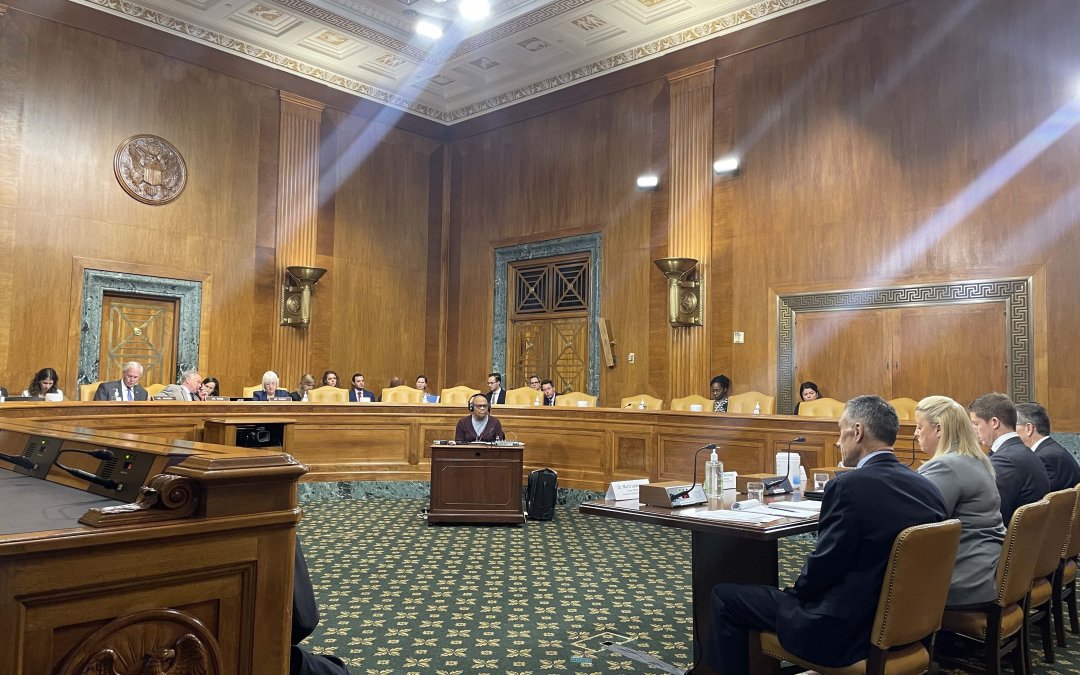WASHINGTON – Members of the Senate Budget Committee heard from climate experts and stakeholders at a hearing Wednesday about the economic costs of climate change on coastal communities, continuing the debate over how – and whether – to distribute funds to sustainability projects.
The hearing came amid a push by chairman Sen. Sheldon Whitehouse (D-R.I.) to examine how climate change affects the economy. Democrats pressed the witnesses on how rising sea levels affect property owners on the coasts, while Republicans urged that climate change is not a large enough threat to warrant high spending.
Whitehouse, who is from coastal Rhode Island, warned of a cascade of economic effects of climate change.
“As homes and businesses in coastal communities face more frequent sunny day flooding and wetter and more violent ocean storms, insurance will become more expensive and harder to find,” Whitehouse said. “Mortgages depend on insurance, so lending will suffer.”
Sean Becketti, a principal at mortgage analytics firm Elliot Bay Analytics, testified that coastal homeowners’ properties make up a significant share of their wealth, which will decline when coastal flooding increases.
He added that lenders may be more reluctant to offer standard 30-year mortgages on coastal homes.
“Unlike the experience with [the 2008 housing crisis], these homeowners will have no expectation that the value of their homes will ever recover,” he said.
Sen. Ron Johnson (R-Wis.) said he is concerned that the U.S. would be “wasting limited resources” if it pours money into climate change solutions. He said that as a long as China and India don’t join in on climate change efforts, the U.S. will have little impact on global climate.
“I’m not a climate change denier,” Johnson said. “I’m just not a climate change alarmist.”
Sen. Chuck Grassley (R-Iowa), the committee’s ranking member, questioned the effectiveness of a carbon tax, which Whitehouse has pushed for. In 2019, Whitehouse sponsored the American Opportunity Carbon Fee Act, which imposes fees on carbon dioxide and other greenhouse gas emissions. The bill never reached the floor.
Marlo Lewis Jr., a fellow at libertarian think tank the Competitive Enterprise Institute, agreed. He said that the U.S. should focus on adapting to rising temperatures rather than “basically [crippling] the United States economically.”
“A carbon tax is either pain for no gain or it’s a cure worse than the disease,” Lewis said.
Sen. Patty Murray (D-Wash.) cited the Quinault Indian Nation’s plan to relocate residents who live seven feet above sea level to higher grounds as an example of threats to coastal communities in her state.
Matthew Eby, the CEO of the nonprofit First Street Foundation, responded that relocation projects are extremely costly.
“I can tell you that it’s much, much more expensive to try and do these things retroactively than to actually manage these things from the beginning,” Ebay said.
Democrats emphasized that the federal government needs to assist local municipalities with funds to combat climate change. However, this may not be in the budget committee’s hands. The panel creates budget resolutions that guide the allocation of funds, but policy decisions are delegated to other committees.
Whitehouse invited Kate Micahud, the town manager of Warren, Rhode Island, to highlight how rising sea levels affect small coastal towns.
Michaud said that Warren has experienced flooding that threatens coastal homes and roads. She described Warren as a “microcosm” of hundreds of coastal towns nationwide.
“There’s definitely a difference between surviving and living, and people want to live,” Michaud said. “Climate change is really a threat to that.”


